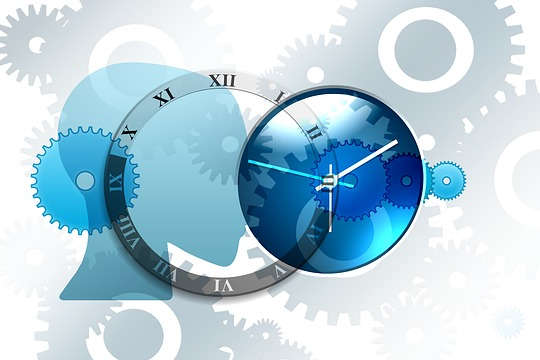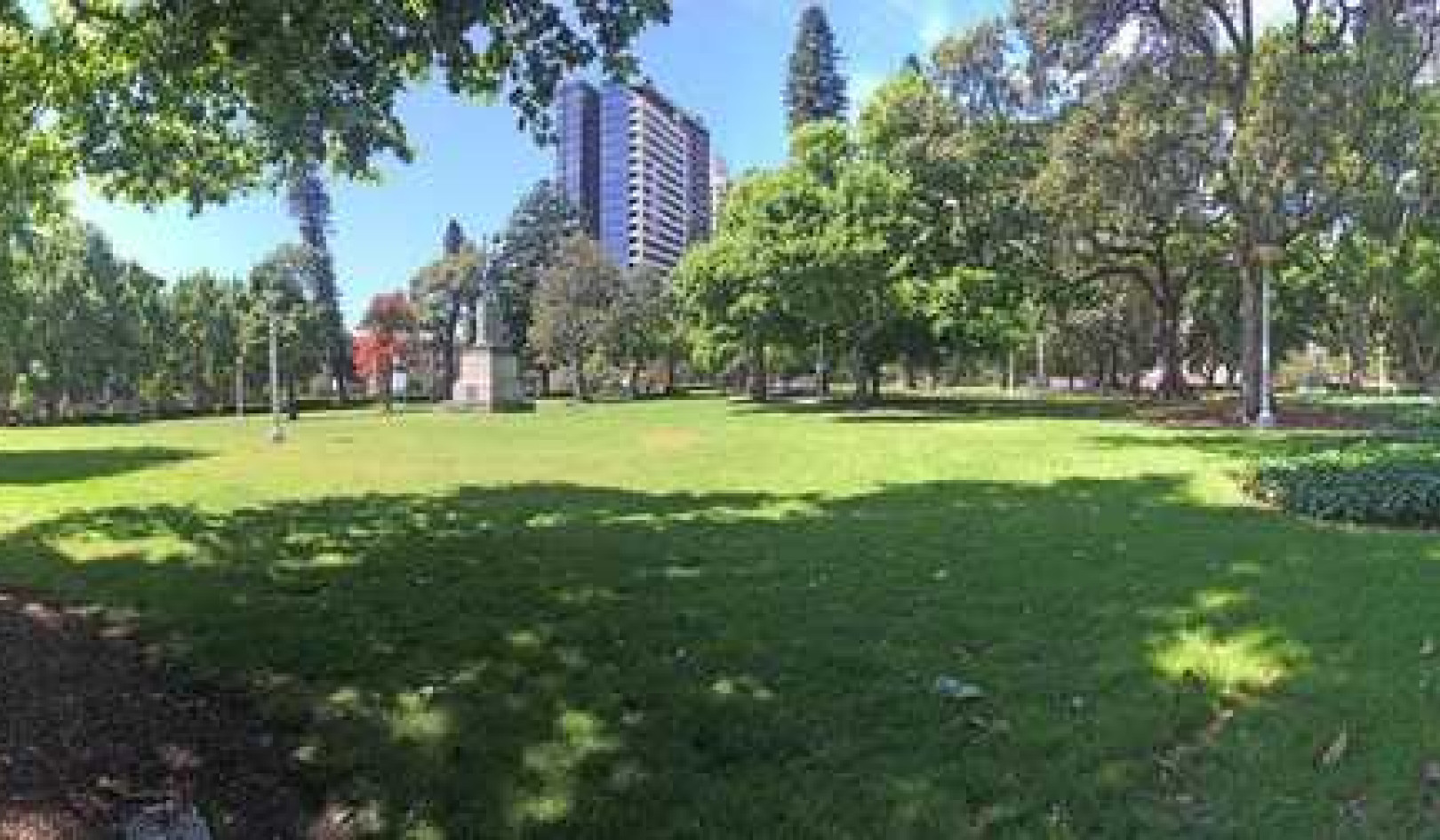
When you are living in the present, you know what's important for you, and you act on that knowing. You are able to see the big picture and the smallest detail all at the same time. Your sense of timing and your instincts become sharp. Time itself slows down and you adapt fluidly to the reality of the present moment. You become an extraordinary and powerful human being. Great athletes show us just how true this is.
Even if you are not an athlete yourself, you can learn something from them. After all, no person's body is independent of their mind, their heart, or their soul. When you are fully present, all four of these dimensions of your humanness are operating in harmony, letting you be as excellent as you can be.
W.I.N. or Lose
Wayne Gretzky has been hailed as the greatest hockey player who ever lived. Hockey experts often describe him as having a sixth sense. They say he could see the whole ice surface at once, recognize the pattern of how the play was unfolding, and intuitively make the right decision about where to pass or shoot the puck. By his own admission, he did not possess superior skating or shooting skills. Wayne Gretzky is simply an incredibly present athlete.
In the summer of 2000, Tiger Woods won the PGA championship, the only one of the four major championships he had yet to win. When asked afterwards how he handled the pressure of making a crucial chip shot on the last hole that ultimately led to his victory, he said, "I just tried to stay in the moment and focus on the shot I had to make." Tiger Woods did not let his mind drift to the importance of making that shot, or to worrying about what people would think if he failed. His entire being was focused on what was important for him in that moment.
At the 1999 World Track and Field Championships, Canadian sprinter Bruny Surin lost the one-hundred-metre dash to American Maurice Greene. Greene set a new world record of 9.79 seconds. However, Surin was leading the race for the first forty metres. When Surin was asked afterwards what happened at that moment in the race, he said that he became aware that he was beating Greene and became elated at the possibility that he might actually win. At that moment, Greene raced past him to win gold and set a new world record. Surin had let his mind drift to the future, a future that was still five seconds away.
Time Slows Down
All great athletes describe their talents at the moment of truth with one common reality: Time slows down. Great home-run hitters say the baseball slows down for them, even though it is streaking in at over ninety miles per hour. They say that the ball looks like the size of a pumpkin. They feel they have lots of time to decide whether to swing or not. These athletes are incredibly present in those moments.
It is not that you and I don't know how to live in the present in our own less glamorous lives. We are often present when we are pursuing a favorite pastime or hobby. Gardening, cooking, watching a fire crackle, and mountain biking are just a few of the hundreds of ways in which we can get into times of flow that could be described as being fully present.
The key question for you and me is whether we can create that same experience for ourselves when we feel under pressure. When the chips are down, our ability to be present measures whether we are able rise to our full potential. I learned a lesson on how we can do this from a professional basketball coach, long before I had heard of living in the present.
What's Important Now?
I was at a senior management meeting in Connecticut. Our president invited Pat Riley, then the coach of the NBA's New York Knicks, to speak to us. Pat Riley told us about the concept that he used with his players to get the best out of them: W.I.N. What's Important Now.
I was struck by this simple idea. "What's Important Now" was Pat Riley's way of helping his players to be fully present while they were on the court. He talked about the distractions that his professional basketball players had to deal with -- endorsements, business deals, contracts, money management, women, and so on. I could certainly imagine how easily any human being could get distracted by these seductive things, and how these distractions could reduce a person's effectiveness.
I was also impressed by one other aspect of What's Important Now. These were top players. Their skills were among the best in the world. They did not need a lot of skill-based teaching and instruction. What they needed was the right attitude to succeed.
In Riley's experience, motivating his players to be present was the most powerful tool that he had to help them perform to the top of their game... to be the best they could be... superstars in their field. He knew they could achieve greatness if they devoted all of their mental, physical, emotional, and spiritual selves to that one thought: What's Important Now.
Becoming the Best We Can Be
Is it any different for the rest of us? When we focus on What's Important Now, we become the best we can be during our own most challenging moments. Whether we are dealing with a rebellious child, persisting with an annoying repair job around the house, or leading an important business meeting, we are deciding that this activity is the most important thing we could be doing in our lives in this moment. We are not experiencing an urge to be somewhere else, to do something else, or to think about something else.
To achieve this wonderful state of mind, you must know who you are. You must trust yourself that you will do what is right for you, without having overly pre-planned your actions, and without the memory of past wounds holding you back. Mark Twain once said, "I have worried about a great many things in my life. And a few of them actually happened." To experience the joy, the self-confidence, and the excellence that comes with living in the present, you must find a way to let go of what you think should be happening, in order to immerse yourself in what is happening.
©2002. Reprinted with permission of the publisher,
Present Living & Learning, Inc. www.presentliving.com/
Article Source
What's Important Now: Shedding the Past so you can Live in the Present
by John Kuypers.
 What's Important Now (W.I.N.) is a book that teaches readers how to be real by focusing on their present moment thoughts, feelings and actions. It is for readers who want to stop faking it and start making it! Offering six strategies called 'doorways', What's Important Now is practical, frank, intimate and inspiring.
What's Important Now (W.I.N.) is a book that teaches readers how to be real by focusing on their present moment thoughts, feelings and actions. It is for readers who want to stop faking it and start making it! Offering six strategies called 'doorways', What's Important Now is practical, frank, intimate and inspiring.
Info/Order this book from Amazon. Also available in a Kindle edition.
About the Author
 John Kuypers is the Director and Founder of Present Living & Learning, Inc., an organization dedicated to helping people from all walks of life learn how to work and live passionately with no regrets by living in the present. He is also the founder of Rapid Shift Performance Systems, which offers tools, training and coaching to help business leaders achieve cooperative performance and productivity gains.
John Kuypers is the Director and Founder of Present Living & Learning, Inc., an organization dedicated to helping people from all walks of life learn how to work and live passionately with no regrets by living in the present. He is also the founder of Rapid Shift Performance Systems, which offers tools, training and coaching to help business leaders achieve cooperative performance and productivity gains.
Watch a video with John: How To Tell You're Not Living In The Present
Related Books
{amazonWS:searchindex=KindleStore;keywords=John Kuypers" target="_blank" rel="nofollow noopener">InnerSelf Market and Amazon




























